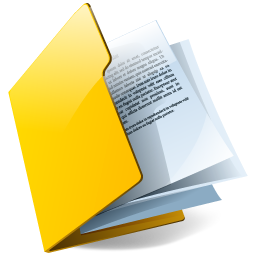Mathematics
CBSE class 5 Mathematics study material in PDF format. MyCBSEguide provides solved papers, board question papers, revision notes and NCERT solutions for CBSE class 5 Mathematics. The topics included are Number System, rounding numbers, estimation, Roman Numbers, Place Value, Addition and Subtraction, Multiplication and Division, LCM and FCF, Fractional Numbers, Decimals, Lines and Angles, Geometrical Shapes, Perimeter and Area, Length, Mass and Capacity, Speed, Distance and Time, Money and Bills, Patterns and Symmetry, Data Handling.

CBSE, JEE, NEET, CUET
Question Bank, Mock Tests, Exam Papers
NCERT Solutions, Sample Papers, Notes, Videos

myCBSEguide App
Complete Guide for CBSE Students
NCERT Solutions, NCERT Exemplars, Revison Notes, Free Videos, CBSE Papers, MCQ Tests & more.
Download CBSE class 5 Mathematics study material in PDF format. MyCBSEguide provides solved papers, board question papers, revision notes and NCERT solutions for CBSE class 5 Mathematics. The topics included are Number System, rounding numbers, estimation, Roman Numbers, Place Value, Addition and Subtraction, Multiplication and Division, LCM and FCF, Fractional Numbers, Decimals, Lines and Angles, Geometrical Shapes, Perimeter and Area, Length, Mass and Capacity, Speed, Distance and Time, Money and Bills, Patterns and Symmetry, Data Handling.
Geometry
SHAPES & SPATIAL UNDERSTANDING
• Gets the feel of perspective while drawing a 3-D object in 2-D.
• Gets the feel of an angle through observation and paper folding.
• Identifies right angles in the environment.
• Classifies angles into right, acute and obtuse angles.
• Represents right angle, acute angle and obtuse angle by drawing and tracing.
• Explores intuitively rotations and reflections of familiar 2-D shapes.
• Explores intuitively symmetry in familiar 3-D shapes.
• Makes the shapes of cubes, cylinders and cones using nets especially designed for this purpose.
NUMBERS AND OPERATIONS
• Finds place value in numbers beyond 1000.
• Appreciates the role of place value in addition, subtraction and multiplication algorithms.
• Uses informal and standard division algorithms.
• Explains the meaning of factors and multiples.
MENTAL ARITHMETIC
• Estimates sums, differences, products and quotients and verifies using approximation.
FRACTIONAL NUMBERS
• Finds the fractional part of a collection.
• Compares fractions.
• Identifies equivalent fractions.
• Estimates the degree of closeness of a fraction to known fractions {tex}\left( \frac{1}{2},\frac{1}{4},\frac{3}{4}etc \right){/tex}
• Uses decimal fractions in the context of units of length and money.
• Expresses a given fraction in decimal notation and vice versa.
Money
• Applies the four operations in solving problems involving money.
Measurement
LENGTH
• Determines area and perimeter of simple geometrical figures.
• Applies the four operations in solving problems involving length, weight and volume.
• Relates commonly used larger and smaller units of length, weight and volume and converts one to the other.
• Applies simple fractions to quantities.
• Converts fractional larger unit into complete smaller units.
• Appreciates volume of a solid body: intuitively and also by informal measurement.
• Uses addition and subtraction in finding time intervals in simple cases.
Data Handling
• Collects two-dimensional quantitative data represents the data in the form of a table.
• Draws a bar graph or a pictograph to present a data.
Patterns
• Identifies patterns in square numbers, triangular numbers.
• Relates sequences of odd numbers between consecutive square numbers.
• Makes border strip and tiling patterns.

myCBSEguide
Trusted by 1 Crore+ Students

Test Generator
Create papers online. It's FREE.

CUET Mock Tests
75,000+ questions to practice only on myCBSEguide app
 myCBSEguide
myCBSEguide



